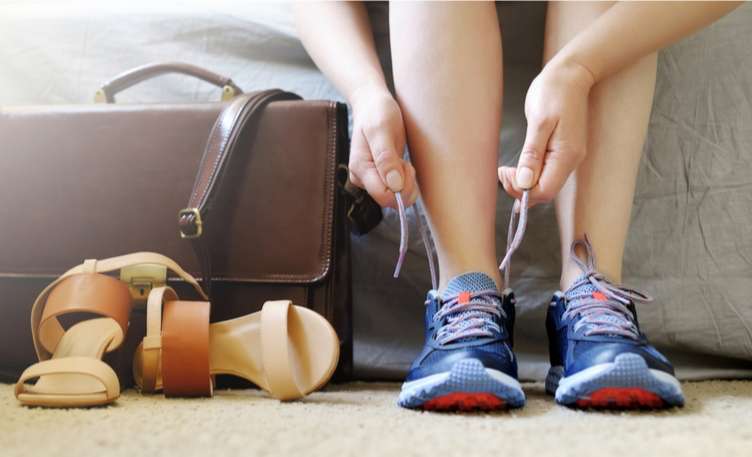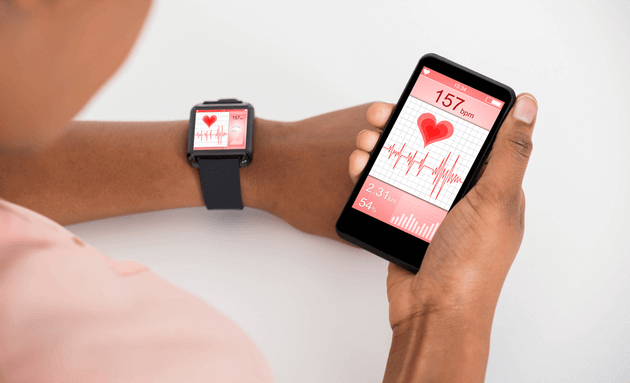Necessary Lifestyle Changes To Cope With Hypertension

Your blood pressure is a determinant of the amount of blood that your heart pumps and the resistance put up by your arteries. The more blood your heart pumps and the narrower your arteries, the higher your blood pressure will be.
Hypertension or high blood pressure is a common condition in which the long-term force of the blood flowing against the artery walls is high enough to cause gradual damage to arteries, this can eventually give rise to problems like strokes, heart attacks, heart failure, kidney disease and more.
Hypertension usually does not produce any symptoms and can often go unnoticed for years leading to severe blood vessel damage. The good news, however, is that high blood pressure can usually be detected with regular monitoring.
How To Manage Hypertension
Treatment of high blood pressure involves a combination of lifestyle changes and drug therapy. Medications are usually only prescribed for people who have consistently elevated blood pressure (despite lifestyle changes) or have other risk factors like diabetes and high cholesterol.
Lifestyle management is the mainstay in the treatment of high blood pressure. A healthy diet, regular exercise, necessary weight loss, smoking cessation and moderation of alcohol consumption can really improve blood pressure. Here are a few ways to keep your blood pressure under check:
-
Make Exercise a Habit

If you are currently relatively inactive, strive to make exercise a normal part of your day rather than an unwelcome one. Exercise guidelines call for a minimum of 150 minutes of moderate exercise (such as brisk walking) per week. A reasonably simple starting goal is 20 to 30 minutes every other day or 10 to 15 minutes every day.
Start by exercising at a low level and once you become comfortable, then slowly start increasing the frequency, duration and intensity of exercise as needed. Undertake moderate exercises like brisk walking, swimming, playing outdoor games. The key goal is to be consistent and make such exercises a part of your daily routine.
-
Know Your Risk Factors
We need to understand that hypertension causes more damage to those who have other risk factors also such as diabetes, high cholesterol and smoking.
Therefore, once hypertension is diagnosed, it is important to look for and correct all these risk factors as well. Ask your doctor to do a standard assessment of your personal risk factors to determine your risks. This will help you understand the severity of your condition.
-
Keep Tabs On Your Weight
If you are overweight, every kilogram you lose can help lower your blood pressure. Aim for gradual but sustained weight loss through regular exercise and a diet you enjoy.
Dietitians often recommend maintaining a food diary to keep tabs on how many calories you consume. This will help you keep track of your physical activity and can motivate you to undertake bigger goals. It will also provide a valid basis for feedback from your doctor. -
Follow a Heart-Healthy Diet

A diet based on fruits, vegetables, whole grains and reduced-sodium can help to lower blood pressure. Guidelines recommend DASH diet (Dietary Approaches to Stop Hypertension) as one of the most heart-friendly diets. The DASH diet is a plan rich in vegetables, fruits, whole grains, fish, poultry, nuts, legumes, and low-fat dairy. These foods contain nutrients such as potassium, magnesium, calcium, protein, and fibre, which are required to tackle hypertension. With the help of a dietitian, you can build your own diet around it that you find tasty and enjoyable.
-
Do Not Get Complacent
Once you are diagnosed with hypertension, you will need to realize that it may indeed be harmful to you and possibly have a huge impact on your health, if you don’t get it under control. As we mentioned earlier, hypertension doesn’t usually show any obvious symptoms. Therefore, you should remember that even if you are feeling fine, you need to follow a healthy lifestyle and take regular medications to keep your blood pressure well under control. Good control of blood pressure is the best way to avoid all the harmful effects that it causes.






